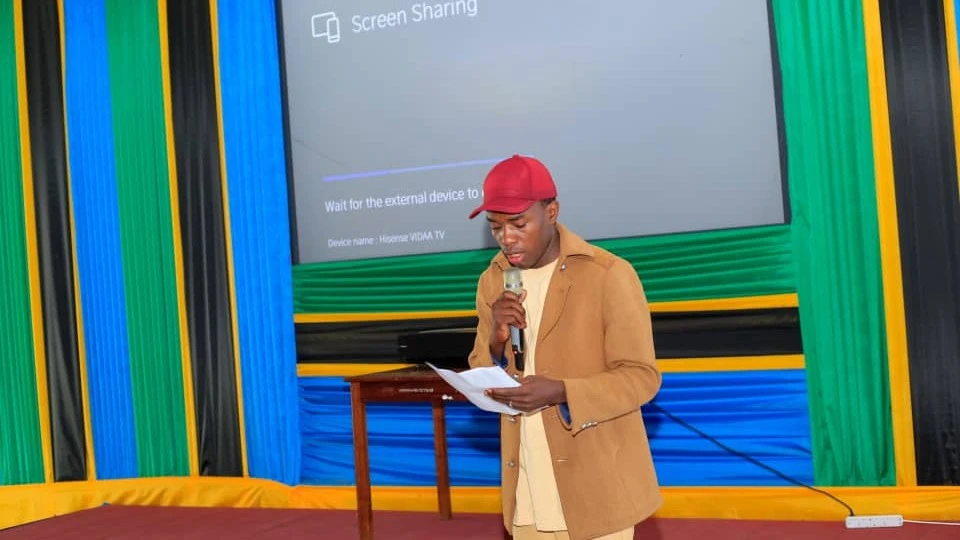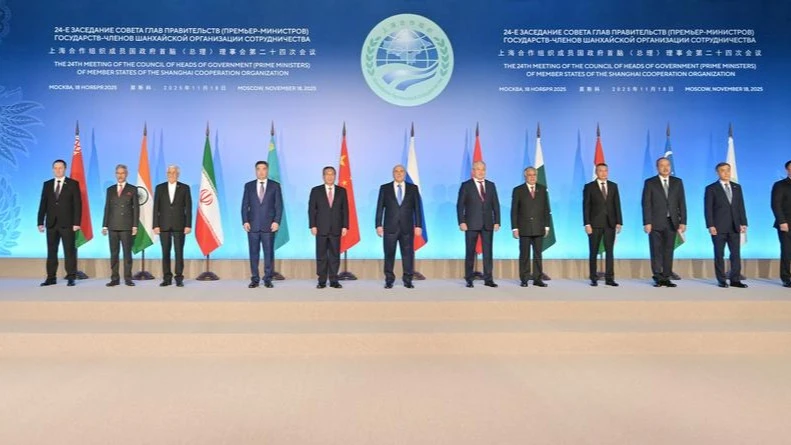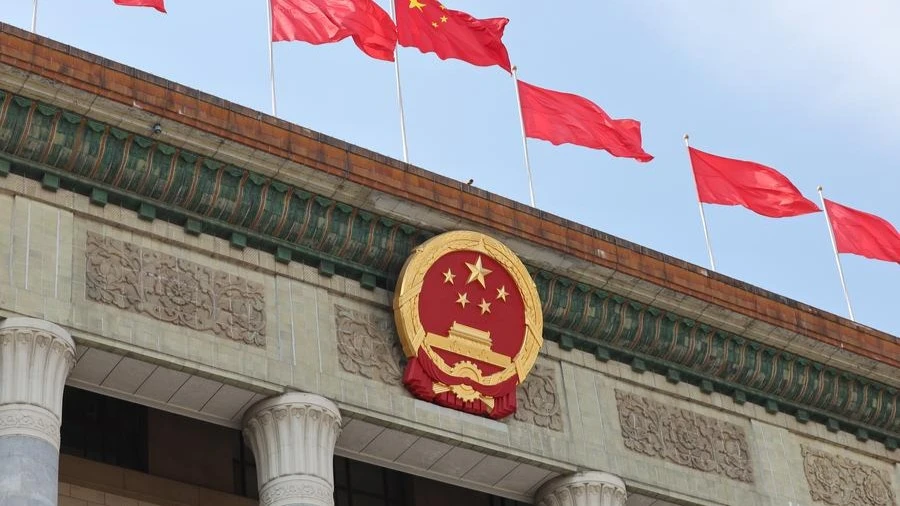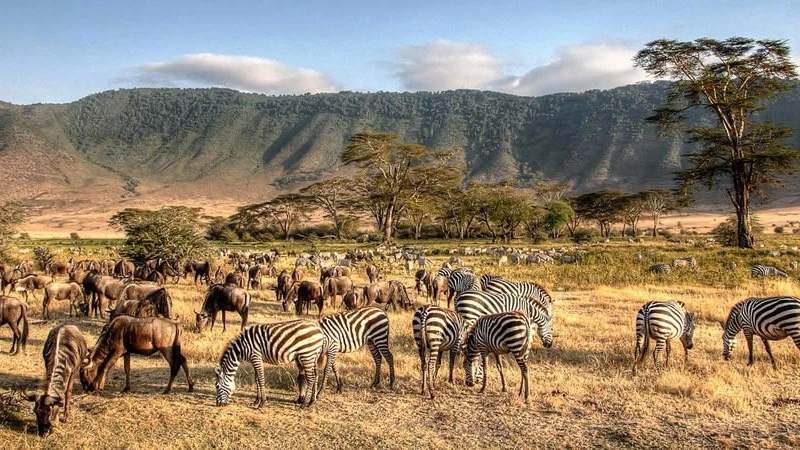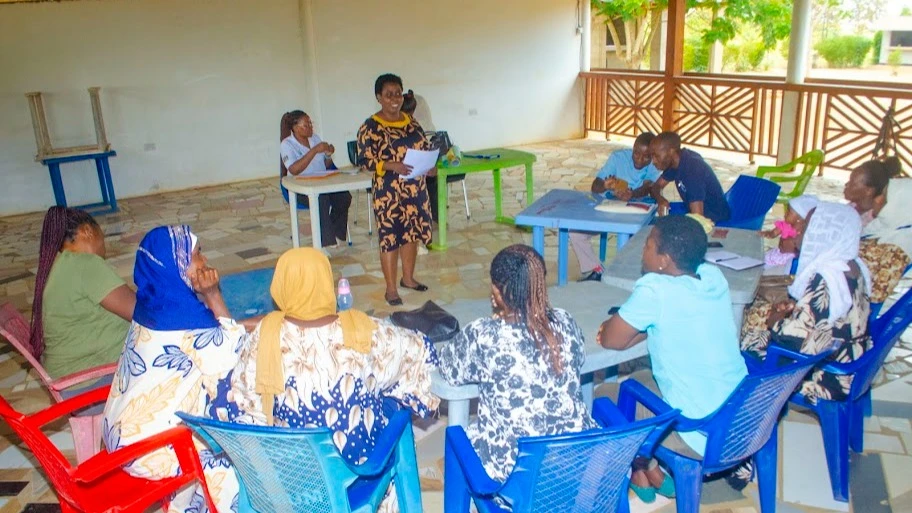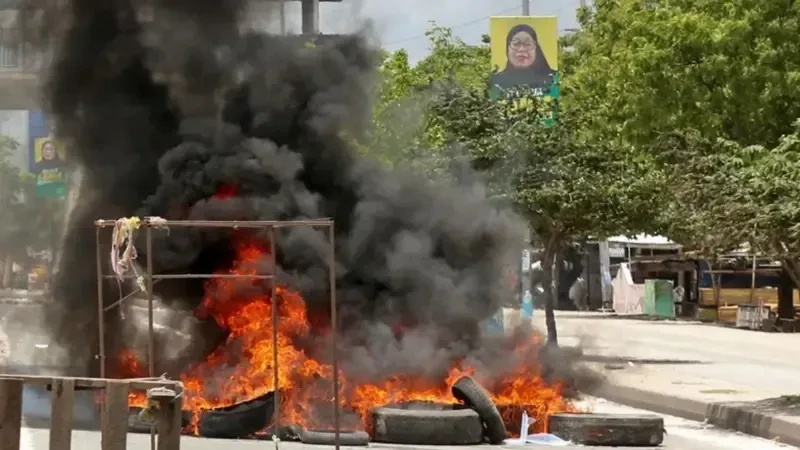Election 2025: Tanzania’s wildlife remains undisturbed across parks
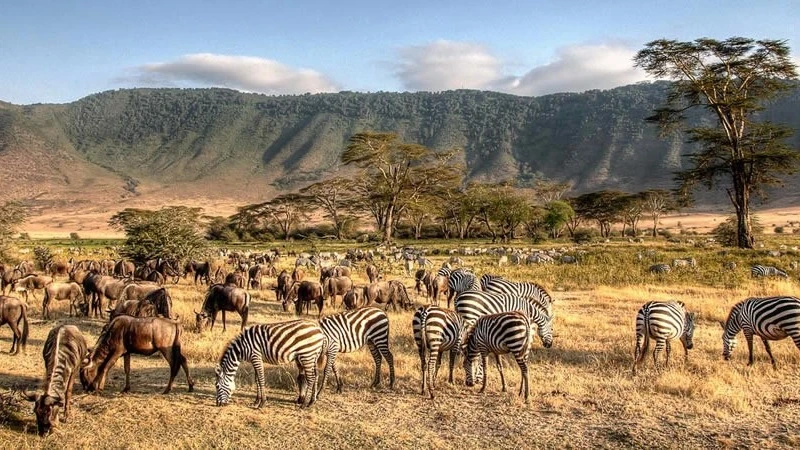
IN the days following Tanzania’s October 29 general elections, a familiar ripple of concern passed quietly through the global tourism community. It wasn’t panic, nor was it a wave strong enough to destabilize travel plans, but it was the kind of subtle questioning that arises whenever headlines about political tension cross borders faster than context.
Hoteliers, tour operators, conservation partners, and even long-time safari lovers began asking the same thing in emails, WhatsApp groups, and booking forums: Is everything still running smoothly? And almost immediately, the people who live closest to Tanzania’s wild heartbeat knew the answer long before any official statement was issued.
For rangers waking up before dawn in Serengeti, the morning felt exactly as it always does, cool, quiet, with the distant lowing of wildebeest and the soft rustling of lions repositioning themselves for the day’s warmth. Guides preparing sunrise drives in Ruaha were greeted by a horizon glowing orange, not by unrest.
On Kilimanjaro’s slopes, climbers tied their boots and tested their headlamps as if nothing unusual had passed through the country’s news cycle. That lived continuity, calm and unbothered by political tremors several hours away, is the unspoken story behind TANAPA’s reassurance to the world: tourism operations have remained uninterrupted, steady, and fully secure.
When TANAPA Conservation Commissioner CPA (T) Mussa Nasoro Kuji stepped forward to speak on behalf of the nation’s 21 national parks, there was a grounded confidence in his voice, less the tone of damage control and more the voice of someone describing a daily reality that many outsiders simply hadn't witnessed.
His message was plain, almost disarmingly so: all national parks, all conservation areas, all lodges, all tourism facilities remain safe, operational, and untouched by the isolated disturbances reported in a few urban centers during and shortly after the elections. It wasn’t just reassurance; it was a reflection of how Tanzanians themselves experienced the moment.
Elections, no matter the country, tend to stir emotions and prompt speculation. Tanzania was no exception. A handful of incidents emerged in certain cities, the kind that flare briefly and then settle, but in a world quick to amplify disruption and slow to contextualize it, those flickers were enough to raise questions thousands of miles away.
What often goes unmentioned, however, is how geographically contained those moments were. They never reached the tourism circuits, neither the northern crown of Serengeti and Ngorongoro, nor the vast southern wildernesses of Ruaha and Nyerere, nor the atmospheric forests of Gombe or Mahale, nor the legendary slopes of Kilimanjaro where international climbers begin their push toward Uhuru Peak.
On the ground, the parks remained alive with their normal rhythms, as if insulated not by walls or fences, but by the sheer consistency of the natural world and the communities dedicated to protecting it. Many Tanzanians, deeply aware of how intertwined tourism is with both livelihoods and national pride, acted as natural buffers against panic.
They know that Tanzania’s heritage, its wildlife, its landscapes, its culture of hospitality- means something far larger than any political moment. And so, without prompting, the country protected that heritage in the way it knows best: by keeping life moving.
This sense of balance and groundedness is partly why TANAPA’s message resonated internationally. There was no exaggeration, no scrambling to patch over uncertainty. Instead, the statement reflected what people living in and around the parks had seen every day: visitors boarding safari vehicles, park gates opening at sunrise, porters preparing loads for Kilimanjaro climbers, lodge staff tending to guests with their signature warmth, researchers conducting fieldwork, and rangers patrolling with the same diligence they exhibited long before election season began.
TANAPA emphasized that not only were operations unaffected, but normalcy had been fully restored across the country within a remarkably short time. The temporary unrest, limited to parts of major cities, never translated into nationwide disruption. Flights continued to land, overland routes remained open, and tourism circuits saw business as usual.
The rhythm of daily life snapped back with a speed that often surprises outsiders but feels entirely natural to Tanzanians. It is a country accustomed to preserving peace not as an abstract ideal but as a lived practice, something maintained collectively, almost instinctively.
For visitors, this means exactly what Commissioner Kuji articulated so clearly: Tanzania remains one of the safest, warmest, and most welcoming destinations in Africa. And it isn’t simply a line crafted for public relations; it’s a sentiment that echoes in the voices of guides sharing stories by a campfire, in the laughter of lodge staff greeting returning guests, in the gentle patience of porters supporting climbers on Kilimanjaro, and in the quiet pride of conservationists dedicating their lives to keeping the country’s natural wonders intact.
Behind the scenes, what makes Tanzania’s tourism sector so remarkably steady during moments that might shake other nations is a web of coordination often invisible to visitors. TANAPA works hand-in-hand with security agencies, local governments, indigenous communities, private lodge operators, and international conservation partners.
During the election period, this collaboration tightened seamlessly, with additional monitoring, increased briefings, and more responsive communication with tour operators, all carried out without disrupting the guest experience. For travelers inside the parks, the only thing they noticed was the timeless natural spectacle they came for: elephants bathing in Ruaha’s rivers, the thunderous migration rolling across Serengeti, or the surreal stillness at the roof of Africa.
Even outside the protected areas, Tanzanians approached the situation with their characteristic composure. Markets reopened, transit hubs buzzed with their familiar rhythm, and city streets returned quickly to everyday commerce. The brief turbulence receded into the background of a nation whose identity is deeply intertwined with stability. That stability, often taken for granted by locals, is part of what reassures the millions who come annually for holidays, honeymoons, research, adventure, and cultural immersion.
What made TANAPA’s message particularly human was the gratitude woven through it. The tourism world showed faith, tour operators-maintained bookings, travelers kept their itineraries, and long-time partners stood firm.
That confidence matters, not just economically but emotionally. It reflects a relationship built over decades, grounded in trust, shared goals, and a mutual commitment to conservation. For TANAPA, this trust is both a responsibility and an affirmation that the world understands Tanzania’s character.
As the post-election quiet settles fully into place, what endures is a portrait of a nation whose wild spaces remain as vibrant and dependable as ever. Visitors dreaming of watching a lioness shepherd her cubs through dew-kissed grass, or hearing the distant rumble of elephants at dusk, or standing breathless as the Serengeti sunrise turns the horizon molten gold, can do so with full confidence. The parks are open, the wildlife is thriving, and the country’s warm welcome remains steady, undimmed by political cycles and unshaken by passing tension.
Tanzania’s wild heart keeps beating, not because it shuts itself away, but because its people quietly protect its openness with a resilience that feels both instinctive and deeply rooted. As the sun rises over the plains each morning, the message is unmistakable: the adventure and calm that draw the world here remain untouched.
In the quieter days after the elections, what stands out most is how naturally Tanzanians guard the places that define them. You see it in rangers heading out before dawn, in guides who speak of the land like an old companion, and in communities that know their future is intertwined with the parks they care for. And for anyone arriving now, first-timers or those returning out of affection, it becomes clear that Tanzania never closed its doors. They stayed open, steady, and welcoming, held there by people who understand the value of sharing their home with the world.
Top Headlines
© 2025 IPPMEDIA.COM. ALL RIGHTS RESERVED











